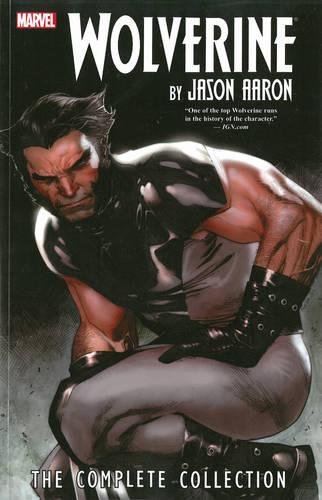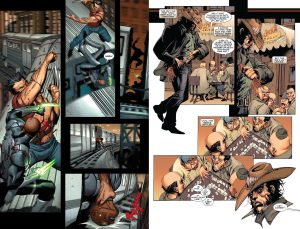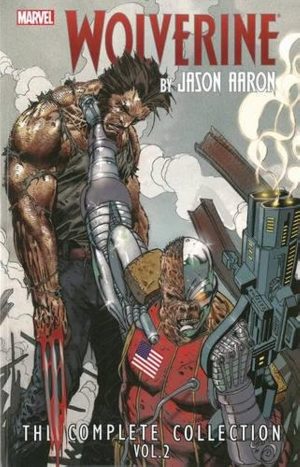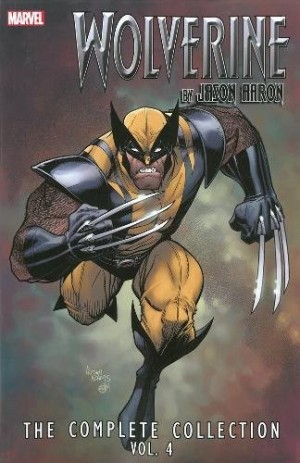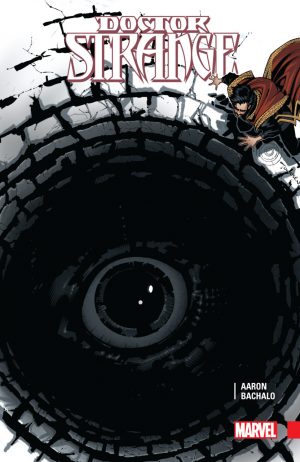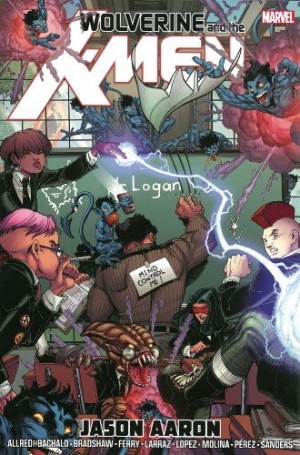Review by Ian Keogh
As marked by the fact of there being even one Complete Collection volume of Jason Aaron’s work on Wolverine, never mind that there’s actually four, Aaron is among the all-time greats when it comes to the grumpy little scrapper with adamantium claws.
That Aaron is conceptually creative beyond the average writer handling Wolverine is evident from his first story. It’s solid gold, featuring Wolverine trapped in a pit in a high security unit where he’s been for six weeks with people firing bullets into him every hour, really testing his healing abilities. Sadistic certainly, and predictable that it becomes a tale of savage retribution, but interestingly the focus is on the sorry life of the ordinary schlubb manning the gun. Howard Chaykin’s art is strong on personality, something a subsequent shorter story exploring connected themes drawn by Udon Studios could have done with.
Aaron’s debut is way better than the following four chapters, originally collected as Get Mystique. They’re intended as an examination of the complex relationship between the X-Men’s shapeshifting enemy and the man who can identify her by smell, but it’s little more than page-filler as the pair clash over and over again. The saving grace is Ron Garney’s cinematic action art, also well applied to The Adamantium Men (sample spread left), which matches the pace with greater energy as Wolverine takes on a company intent on turning out copies of him.
‘Manifest Destiny’ is four chapters previously collected as X-Men: Manifest Destiny. It’s the comic equivalent of a kung-fu movie, with redemption the main theme as Wolverine attempts to correct a past mistake. Stephen Segovia’s art is extraordinarily decorative (sample spread right), but he runs out of steam and the final pages by Paco Diaz Luque are rushed. It’s fun without ever working beyond the sum of its influences, but points the way to better extrapolation of similar ideas in Vol. 4.
That leaves the short Adam Kubert-drawn story, which begins as a pastiche of Wolverine’s ubiquitous presence in so many series, but then veers into completely different territory via Spider-Man, who has a caring point to make. Kubert expends a lot of effort packing the panels to ensure the story works.
As a collection the best of Aaron on Wolverine is only glimpsed here rather than sustained, but it has ideas, energy and a willingness to explore various sides of Wolverine’s personality, so bodes well for Vol. 2.
